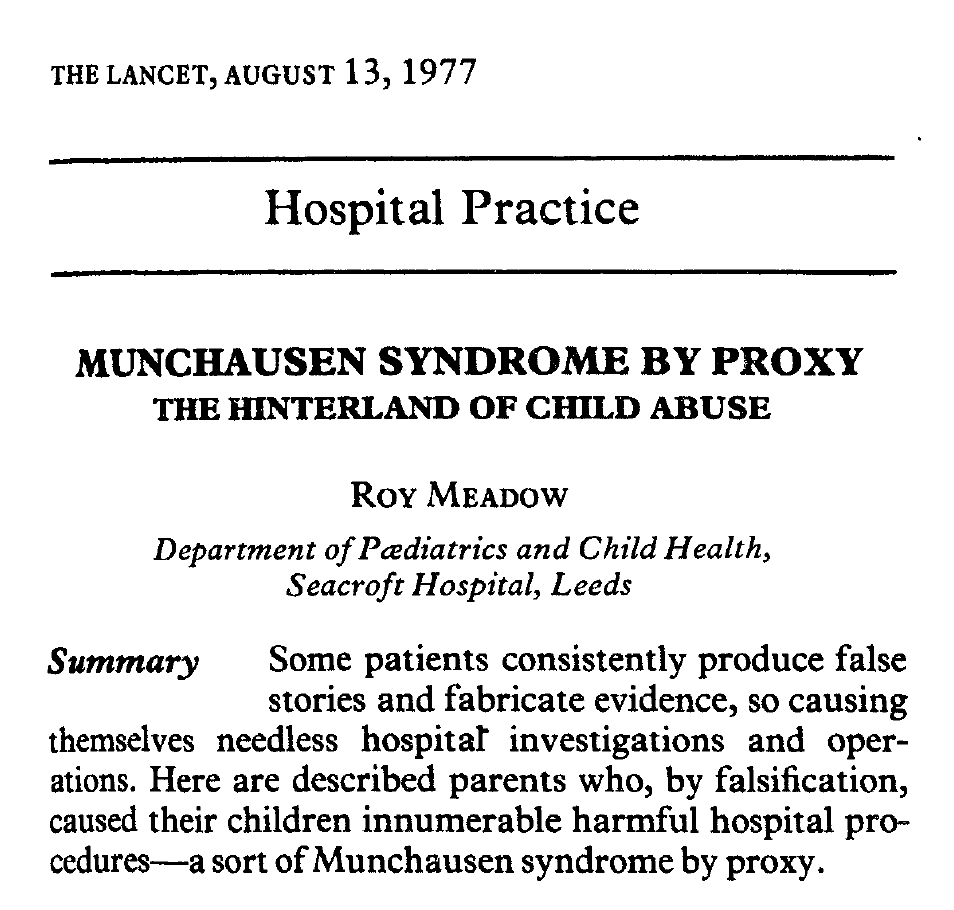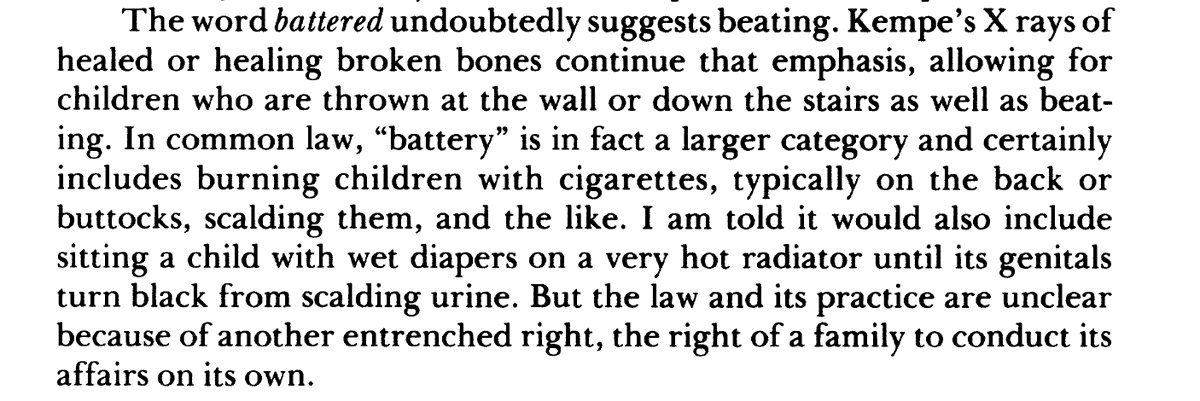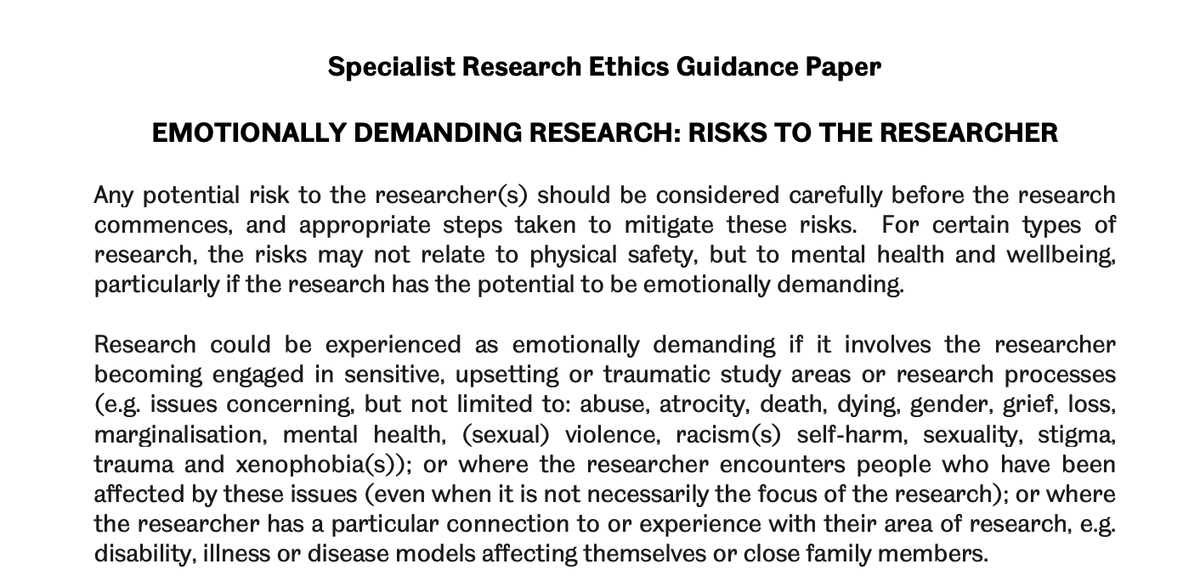so here it is - the thread on researching the history child abuse and the emotional impacts it has - this will necessarily be gruesome, so do please mute if you don& #39;t want this crossing your TL
so I research child abuse as part of my work on illness deception (munchausen syndrome) and & #39;munchausen by proxy& #39;, the fabrication or induction of illness in a dependent - usually a child
this latter term (now discarded) was popularised in 1977 by SR (Roy) Meadow
this latter term (now discarded) was popularised in 1977 by SR (Roy) Meadow
so this initial article has two cases in it - one where an infant of c.6 months is poisoned with salt over a number of months and dies, and another where a mother adds her own blood to her child& #39;s urine samples and provokes many unnecessary (and invasive) diagnostic procedures
this is very much the low end of intensity, and as you look back to the beginnings of hospital attention on abused children, you see in late 1950s paediatric radiology (x-rays) finding healing fractures in infants with no explanation from parents
this again is not very graphic, but it is very distressing if you allow yourself to stop and think about it - the people who first wrote about it and connected the healing fractures to the possibility of abuse chose a deliberately emotive name & #39;the battered child syndrome& #39;
things get worse when you look back through some of the references in the child abuse stuff and find titles like & #39;homicide by pepper& #39; (1964) where there is a photograph of a three and half year old girl& #39;s body with pepper granules on her neck (which I won& #39;t show)
but also a photo of the amount of pepper removed from this girl& #39;s stomach - and you just think *why have you included that?* it seems almost cathartic on the part of the doctor & #39;look at what i had to deal with& #39;
and this is not just something in the medical literature - there is this stomach-churning passage in Ian Hacking& #39;s scholarly article & #39;The Making and Molding of Child Abuse& #39; where i physically recoil at the final example every time i read it
and whilst words are awful, the pictures are worse
if you pick up a textbook on social work and child protection from sexual abuse, and there is a section in the middle for colour photographs - they help doctors and social workers identify the signs of sexual abuse on genitals
if you pick up a textbook on social work and child protection from sexual abuse, and there is a section in the middle for colour photographs - they help doctors and social workers identify the signs of sexual abuse on genitals
so in the one i have in my office there are 4ish pages of small photos, each detailing different kinds of abuse on different parts of children, all immortalised in full colour
i shudder even thinking about it to be honest
i shudder even thinking about it to be honest
and then looking up the letters section for the lancet on a new test to get evidence of whether children have been raped (reflex anal dilation) in the 1980s and there are photos there too - which you can just download
no warning, no nothing
no warning, no nothing
and so i wonder about ethics policies for this research, and whether, because all these things are in medical journals and thus already in the public domain, whether ethics has missed a trick here, because i certainly feel strongly affected by these words and images and cases
and there are ethics procedures for challenging sources beginning to come out such as the one below at the university of sheffield but this is massively under-researched in general, and especially in history
and i wonder whether this is (in the particular case of researching already-published material on child abuse) partly to do with medicine specifically, even though these journal articles (and photos!) are available to anyone with a university login
because more and more i want to centre the historian with the history, and this means examining my own emotional reactions, and how i deal with these images and words, and makes me wonder why i have chosen to research such a viscerally affective part of the history of medicine
but every time i look back at these articles, i feel like i need to take a break again
especially the ones around sexual abuse, because they just throw images at you with no warning, actual images of the damage caused by sexual abuse - and i don& #39;t doubt that this is needed...
especially the ones around sexual abuse, because they just throw images at you with no warning, actual images of the damage caused by sexual abuse - and i don& #39;t doubt that this is needed...
for identification purposes, to get doctors in A&E and GPs to be able to identify this stuff - but the toll it takes and the way that one can write about it is really under-explored /ENDS

 Read on Twitter
Read on Twitter







